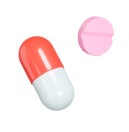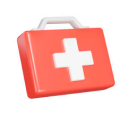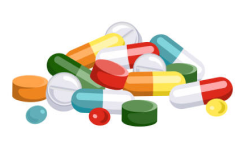Uses
What is Tibolone for?
Tibolone is used for relieving post-menopausal symptoms and prevention of osteoporosis.
Tibolone is a substance that has favourable effects on the different tissues in our body such as the brain, vagina and bone.
It should only be used in postmenopausal women with at least 12 months of since their last natural period.
How should I take or use Tibolone?
The tablets should be taken at the same time daily. Start a new pack immediately once the current one pack is completed, do not leave a break in between strips or packs.
Swallow the tablet whole with water or a drink. It can be taken with or without food.
What should I do if I forget to take or use Tibolone?
If you forget to take a tablet, take it as soon as you remember, unless you are more than 12 hours late. If you are more than 12 hours late, just skip it and take your next tablet at the usual time. Do not take a double dose.
Precaution
What precautions should I take when taking or using Tibolone?
If you are due to have an operation, tell the surgeon you are taking tibolone. You may need to stop taking tibolone a few weeks before the operation to reduce the risk of a blood clot.
What food or medication should I avoid when I take or use Tibolone?
Some medicines may interfere with the effects of tibolone and cause irregular bleeding such as blood thinning medicines (e.g. warfarin). Please inform your doctor or pharmacist if you are taking, have recently taken or might take any other medicines, including herbal medicines or natural products.
Side Effects
What are some common side effects of Tibolone?
Tibolone may cause some unwanted side effects. Generally, the common side effects tend to occur at the beginning of the treatment. Such side effects include:
- breast tenderness
- stomach/abdominal pain
- unusual hair growth
- vaginal spotting
- weight gain
Inform the doctor if any of the aboce side effects lasts for more than a few months after the beginning of the treatment or if they become serious or bothersome.
Rare but serious effects may occur. Contact the doctor as soon as possible if any of the following are noticed:
- Rise in blood pressure (symptoms may be headache, tiredness, dizziness)
- Yellowing of your skin or the whites of your eyes (jaundice)
- Sudden migraine-type headaches
- Signs of blood clot
- Painful swelling and redness in legs
- Sudden chest pain
- Shortness of breath
- Lump or change in the appearance of the breast
- Bothersome mood changes
Most of the women will not experience menstruation during treatment. However, you may experience irregular bleeding or spotting during the first 3 months of starting tibolone. If this continue for longer than 6 months, please see your doctor as soon as possible.
Handling
How should I store Tibolone?
- Keep away from children
- Keep in a cool, dry place, away from direct sunlight
- Store at room temperature
For more information
What else should I know about Tibolone?
Studies have shown that tibolone may be associated with a slight increased risk of both stroke and endometrial cancer. It may also be associated with an increased risk of breast cancer. Regularly check your breast for any changes such as dimpling of the skin, changes in the nipple, or any lumps you can see or feel. The risk of breast cancer returns to normal within a few years after stopping treatment.
If you have any concerns, please discuss with your doctor. Your doctor will consider the benefits versus its risks when they prescribed the treatment to ensure it remains suitable for you.
Disclaimers
If you take more than the recommended dose, please seek medical advice immediately. The information provided on this page does not replace information from your healthcare professional. Please consult your healthcare professional for more information.
This article is jointly developed by members of the National Medication Information workgroup. The workgroup consists of cluster partners (National Healthcare Group, National University Health System, and SingHealth), community pharmacies (Guardian, Unity, and Watsons), and the Pharmaceutical Society of Singapore. The content does not reflect drug availability and supply information in pharmacies and healthcare institutions. You are advised to check with the respective institutions for such information.
Contributed by
Last Updated on August 2018

Need More Medicine?
Use Medicine Order Service on HealthBuddy.

Medicines Reminder
Get reminders and chart progress on HealthBuddy.




















